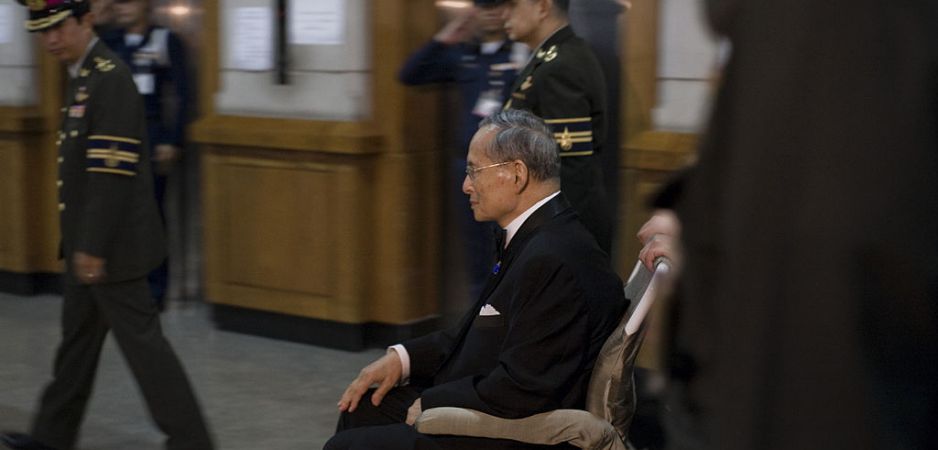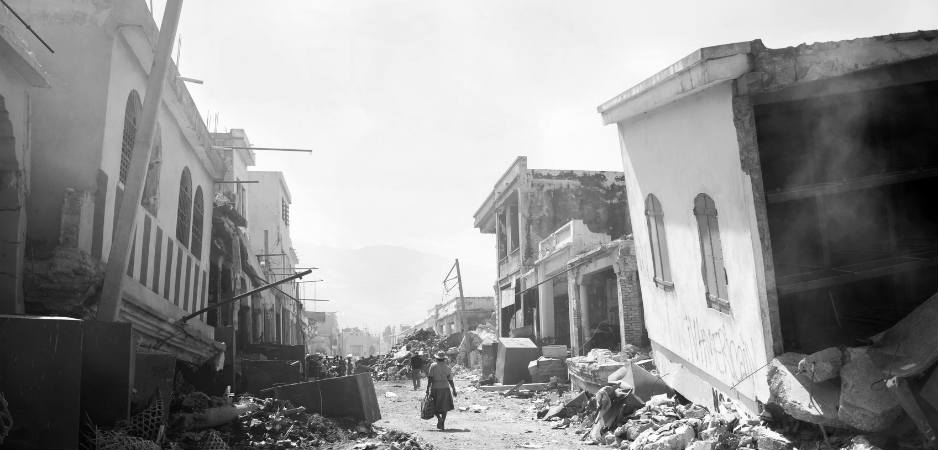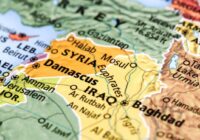With the death of the old king, time might be running out for Thailand’s anachronistic, regressive and repressive monarchy.
This was a week of much upheaval. Even as the pound continued to tumble, tragedy struck Haiti. Hurricane Matthew killed over 1,000 people in the town of Jérémie. In contrast, the hurricane did not cause much damage in Cuba. In Fidel Castro’s land, the communist regime takes effective preventive measures that even The Economist, a lover of free markets and a limited state, commends.
These events were significant but the key development this week was the death of Thailand’s King Bhumibol Adulyadej, the world’s longest-reigning monarch. The 88-year-old died after occupying the throne for 70 years. Many Thais considered him semi-divine and have treated him for decades like a virtual god.
In the August 14 edition of The World This Week, this author examined the class and regional divisions that threaten to tear Thailand apart. For the last few years, the country has been “going through a protracted political crisis.” On one side are the royalists, the “yellow-shirts,” who are supported by urbanized, middle-class citizens and established elites in southern Thailand. On the other side are the “red-shirts,” who hail from the rural northern and eastern parts of the country.
The yellow-shirts have been firmly in the saddle since 2014 when General Prayuth Chan-ocha, the current prime minister, conducted Thailand’s 12th coup since 1932. Prayuth deposed Yingluck Shinawatra, the sister of the tycoon Thaksin Shinawatra, who was then prime minister. As this author pointed out, Thaksin is a populist arriviste who has challenged the cult of the king. With Bhumibol gone, this cult will be harder to sustain.
The late king represented the conundrums of modern life where the democratization of pop culture sits alongside veneration for kings and queens. Thailand’s veneration of Bhumibol is incongruous because this rather Westernized king had little in common with his people. Born in Cambridge when his father was studying at Harvard, Bhumibol was educated in Switzerland and met his wife in Paris where she was training to be a concert pianist. When the late king was still a child, the 1932 Siamese revolution took away the absolute power of the monarchy, making it a largely ceremonial and constitutional institution. Then, The Economist compared this revolution to the Young Turk Revolution of 1908.
Instead of the royals sailing off into the setting sun in a fancy yacht, Thailand experienced the great comeback of the monarchy. Bhumibol came to power after the mysterious murder of his brother in 1946, which was never investigated properly. Thereafter, he worked hard to woo his subjects. He presided over countless social functions and traveled incessantly. Bhumibol showed up even in remote rural areas, often with a camera slung around his neck. The king, his ambitious courtiers and his propagandists worked tirelessly to create a formidable personality cult, making Bhumibol a symbol of national identity.
The Cold War came as a godsend for the Thai monarchy. As Phimmasone Michael Rattanasengchanh outlined in2012, the United States “played an important role in welding the military and the monarchy together as allies.” Defeat and disgrace in Vietnam made the US back its ally to the hilt. Uncle Sam and the Central Intelligence Agency (CIA) saw Bhumibol as a bulwark against communism and helped restore the monarchy to center stage after two decades on the sidelines. From now on, the monarchy was no longer ceremonial. It was the defining feature of Thailand.
Bhumibol proved to be a canny operator. He managed to seduce both elites and many in the masses to buy into a society purportedly based on order, hierarchy and religion. In reality, the disparate people at the margins of the Thai state continued to suffer from oppression, corruption and poverty. The Thai military crushed the Malay-Muslim insurgency of the 1950s and the peasant revolts of the 1970s with an iron fist. Meanwhile, the king pretended to be above politics but kept meddling behind the scenes and invariably favored the military, “tacitly supporting coup after coup.” Bhumibol never quite forgot the Marxist adage that power flows from the barrel of a gun. He also remembered an age-old royal trick: Divine pretensions tend to make kings more powerful.
Bhumibol, his courtiers and cronies made billions as Thailand’s economy boomed. The royal family now owns a colossal amount of wealth. It has woven a web of patronage across a wide spectrum of Thai society and has a large section of the media operating as its propaganda arm. As if this was not enough, draconian lèse-majesté laws make even mild criticism of the royal family impossible. This author has pointed out earlier how these laws are vague, how proceedings are held in secret and how penalties are disproportionate. In fact, the deified royalty and oppressive laws make debate and discussion impossible. They are key reasons of why Thai politics is still pre-modern and trapped in the past.
Now that the venerated king is dead, turmoil will certainly hit Thailand. Maha Vajiralongkorn, the former crown prince and the new king, is not a popular chap. The Japan Times has called him a “polygamous and indulgent” figure who is intimidating and lacks interests in public engagements. Maha’s reputation for debauchery makes it hard for the palace coterie to pass the new king off as divine. To add to the woes of monarchists, their new big boss was caught in a 2007 video with his then wife in high heels and a G-string eating a lavish meal and petting a posh poodle. Pathetically, this poodle held the rank of an air chief marshal and this fact might not go down too well in the year 2016.
 Spoilt rich kids are not new phenomena on the planet. Most dynasties go soft after a few decades or centuries in power. Eventually, they are toppled from power if they do not graduate to shaking hands and waving to large crowds as ceremonial monarchs. What makes the situation in Thailand explosive is the ongoing clash between entrenched Bangkok elites that have hidden behind the sanctity of the king and the nouveau riche Shinawatra clan that is intent on having its day in the sun. Sooner rather than later, this powder keg will explode.
Spoilt rich kids are not new phenomena on the planet. Most dynasties go soft after a few decades or centuries in power. Eventually, they are toppled from power if they do not graduate to shaking hands and waving to large crowds as ceremonial monarchs. What makes the situation in Thailand explosive is the ongoing clash between entrenched Bangkok elites that have hidden behind the sanctity of the king and the nouveau riche Shinawatra clan that is intent on having its day in the sun. Sooner rather than later, this powder keg will explode.
With Bhumibol dead, the useful smokescreen of a semi-divine king has vanished. His dissolute son commands little respect of either elites or the masses. Curiously, the role of the king is not clearly defined in the country’s constitution. This might have worked well under canny Bhumibol who conducted a “monarchist power grab.” Now, it is likely to cause confusion. Furthermore, many are likely to raise the age-old question: Does Thailand or any other country need a monarchy?
The immediate and instinctive answer to that question is not really. One of the first things children start saying happens to be that pithy remark, “that’s not fair.” This idea of fairness or lack of it applies to monarchy in particular. Human beings have fought long and hard for democracy and meritocracy. These are ideals that modern societies hold dear. Besides, democracy has turned out to be the least-bad form of government so far and meritocracy has generally proven to be a good idea for a pretty long time.
In the context of Thailand where 0.1% of the population owns nearly half of the nation’s wealth, the country might be better off without a monarchy. As per a 2012 Forbes article, that might give Thailand $30 billion of the royal family’s wealth, which could be invested in education, health care or any other long-term asset. It might just chip away at Thailand’s horrendously ossified and stratified social structure as well.
Many argue that monarchy still has a role even in the modern world. They point out that tradition is a jolly good thing. Queen Elizabeth II and other monarchs connect a nation to its past and provide a symbol of collective identity. They are also of the view that a monarch ends up keeping a healthy check on charismatic elected leaders. As Sir Mark Tully, the 80-year old retired BBC legend, once remarked to this author, “having the queen is not so bad, imagine President Tony Blair or President David Cameron.”
There is more than an element of truth to this argument. In the presidential form of government, elected leaders are not only in charge of the government but also head of state. When this happens, the press treats them with greater reverence and does not hold their feet to the fire. For instance, American and French presidents get an easier pass than British or Danish prime ministers. No one grilled George W. Bush in the same manner as Jeremy Paxman interrogated Tony Blair on Iraq.
In the case of Thailand, this argument does not entirely hold because it is ruled by a military junta that has the blessings of the royal palace. No one in power is questioned anyway. Even the Shinawatras are a mini royal family in the making with large fortunes and clever populism forming the basis of their political power. Doing away with the current monarchy might just see another one taking its place because the society is still monarchical.
Yet another argument in favor of monarchy is persuasive, particularly in the United Kingdom. It keeps politics out of the highest office of the land. Even republics with a parliamentary system such as India and Germany have not been able to keep politics out of the presidential elections. In India, the president is not quite above party matters unlike the British queen.
Those who like Thailand’s monarchy might make the claim that an elected but ceremonial president might end up being a front for either the old establishment or the Shinawatra clan, depending on who has the upper hand in Thailand’s perpetual power struggle. The trouble with this argument is that it assumes a ceremonial monarch à la Sweden or Denmark. This assumption is wrong. It is an open secret that Thailand’s current monarchy is definitely not above politics.
As numerous journalists and intelligence operatives have detailed over last few decades, Bhumibol pulled the strings behind the scenes, exploited his semi-divine status and used the power of his purse to rule the roost in Thailand. His son and successor is likely to have power without responsibility. Assuming that he is too dissolute to use that power, it is unlikely that palace officials who have tasted blood will give up pelf and patronage. More importantly, the likes of Prayuth, the current prime minister, are likely to use the cover of the monarchy for a concerted power grab as they feel more insecure in a post-Bhumibol world.
In light of the above, a republic with an elected president at the helm makes more sense for Thailand in the long run.
Despite the genuine grief that enveloped large sections of Thai society on the death of Bhumibol, the Chakri dynasty might finally be running out of time. Like innumerable other dynasties, this rich and powerful family has sipped too long from the poisoned chalice of success. Bhumibol’s heirs are certainly not worthy, even if they may not be entirely worthless.
Besides, this bitterly divided country has been locked into a brutal power struggle that is tearing apart its soul. Meanwhile, the Malay-Muslim insurgency has resurfaced and claimed more than 6,000 lives over the last 12 years. Thailand needs fresh thinking and new institutions to tackle the inequities and strife that blight this idyllic land. With the old king dead, it is perhaps time for the rest of the royals to sail off into the sunset.
*[You can receive “The World This Week” directly in your inbox by subscribing to our mailing list. Simply visit Fair Observer and enter your email address in the space provided. Meanwhile, please find below five of our finest articles for the week.]
Women Can Play a Critical Role in Combating Terrorism
Extremism cannot be defeated without the inclusion of women.
Women should be encouraged to take a greater role in counterterrorism efforts as women and girls are disproportionately affected by terrorist violence. This was the message brought home in a speech by Sarah Sewall, US under-secretary for civilian security, democracy and human rights, at a recent gathering. She was speaking about the critical importance of including countering violent extremism (CVE) in the agenda for Women, Peace and Security (WPS) programs that exist in many countries.
As Sewall noted: “In too many areas around the world, violent extremists threaten generations of hard-won progress for women and vulnerable minorities. To defend that progress—and to prevent a reversion of what Secretary [of State John] Kerry calls ’medieval thinking’—we must defeat violent extremism.” She pointed to the grim reality that while military force is effective in defeating terrorists, “it cannot defeat terrorism.” Sewall called for increased funding to strengthen the capacity… Read more
How One Couple Brought Health Care to Haiti
Amidst a doctors’ strike and a hurricane in Haiti, a story of one couple’s determination to bring health care to the island.
In May 2016, when I heard the news of the doctors’ strike taking place in Haiti, my heart sank. Doctors, nurses and medical residents had been on strike since March as they protested low wages and demanded better working conditions, leading to the shutdown of Haiti’s largest hospitals. And now, as the news of the devastation caused by Hurricane Matthew floods in from Haiti, ever more families need access to health care and medicine as quickly as possible.
Since the strike began, hospitals have essentially closed, and Haitians in need of medical care have been left to compete to get into NGO-run hospitals whose facilities are overwhelmed, with no room for patients or enough resources to treat the abundance of injured and ill that fill the waiting rooms. After spending the last six years working at… Read more
How Did Intervention Become a Dirty Word?
Civilians in Iraq and Syria are paying the price for Western weariness of military interventions.
The Syrian city of Aleppo now resembles an eerie ghost of Dresden or Stalingrad—burning, in ruins, decimated and helpless. Millions have been displaced across the region, hundreds of thousands dead, with the United Nations (UN) and the North Atlantic Treaty Organization (NATO) watching with indifference for five long, relentless, disastrous years.
The argument for military intervention, while difficult politically for the West, must never be ignored because of economics, party politics or public sentiment. To do so would be erroneous and, as in the case of Iraq and Syria, critically unforgivable.
Watching footage from the bombed-out hospitals in Aleppo must fill even the stoniest of us with helpless, gut-wrenching sadness: the endless flow of amputees, widows, orphans, the dead and the still living, spilling into every corner of the emergency departments—demonstrating further the helplessness of the situation. These halls are inundated… Read more
Turmoil in Spain, Crisis in Europe
The problems facing the Spanish left mirror the crisis engulfing Europe.
The current chaos devouring Spain’s Socialist Workers Party (PSOE) has mixed elements of farce and tragedy. However, the issues roiling Spanish politics reflect a general crisis in the European Union (EU) and a sober warning to the continent: Europe’s 500 million people need answers, and the old formulas are not working.
On the tragedy side was the implosion of a 137-year-old party that at one point claimed the allegiance of half of Spain’s people now reduced to fratricidal infighting. The PSOE’s embattled general secretary, Pedro Sanchez, was forced to resign when party grandees and regional leaders organized a coup against his plan to form a united front of the left. The farce was street theater, literally: Veronica Perez, the president of the PSOE’s Federal Committee and a coup supporter, was forced to hold a press conference on a sidewalk in Madrid because Sanchez’s people barred her from… Read more
Qatar and Iceland: A Study in Soft Power Strategy
Qatar should take note of Iceland’s successful use of soccer as a tool of soft power.
The contrast in soccer soft power between Qatar and Iceland speaks volumes. A comparison of the strategies of both countries demonstrates that it takes more than money to leverage soccer to create political, geopolitical and economic opportunity.
Money and the desire of FIFA, the global soccer body, to take one of the world’s foremost sporting events beyond Europe and the Americas helped Qatar win the right to host the 2022 World Cup. Six years after the awarding, Qatar is a nation under fire by human rights and labor activists for its controversial labor regime, and it has yet to convincingly counter widespread suspicions of wrongdoing in its campaign to win its hosting rights. It is also suspected by pro-Israeli circles, Christian conservatives and Arab detractors of supporting militant Islamist groups. Iceland is a nation that is emerging from virtual bankruptcy in the… Read more
The views expressed in this article are the author’s own and do not necessarily reflect Fair Observer’s editorial policy.
Photo Credit: Government of Thailand
Support Fair Observer
We rely on your support for our independence, diversity and quality.
For more than 10 years, Fair Observer has been free, fair and independent. No billionaire owns us, no advertisers control us. We are a reader-supported nonprofit. Unlike many other publications, we keep our content free for readers regardless of where they live or whether they can afford to pay. We have no paywalls and no ads.
In the post-truth era of fake news, echo chambers and filter bubbles, we publish a plurality of perspectives from around the world. Anyone can publish with us, but everyone goes through a rigorous editorial process. So, you get fact-checked, well-reasoned content instead of noise.
We publish 2,500+ voices from 90+ countries. We also conduct education and training programs
on subjects ranging from digital media and journalism to writing and critical thinking. This
doesn’t come cheap. Servers, editors, trainers and web developers cost
money.
Please consider supporting us on a regular basis as a recurring donor or a
sustaining member.
Will you support FO’s journalism?
We rely on your support for our independence, diversity and quality.











